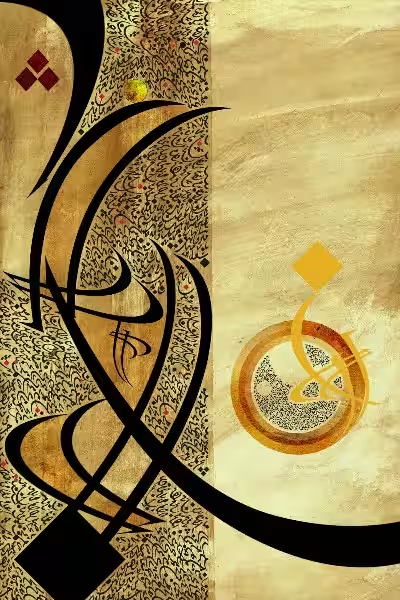
Jade, known as جايد (jaid) in Arabic, has captivated civilizations for millennia. This precious gemstone, revered for its beauty and durability, holds a special place in the hearts and minds of people across the globe. In the Arabic world, jade carries a rich tapestry of history, cultural significance, and symbolism. Let’s delve into the fascinating world of jade in Arabic, tracing its path through time and uncovering the layers of meaning that make it so cherished.
Jade in Arabic Literature and Folklore
Jade’s enchanting presence is woven into the fabric of Arabic literature and folklore. From ancient tales to modern poetry, the gemstone appears as a symbol of prosperity, good fortune, and spiritual purity. In classic Arabic poetry, jade is often used as a metaphor for beauty, elegance, and the enduring nature of love. For example, the renowned poet Al-Mutanabbi (915-965 AD) praised jade’s beauty in his verses, comparing it to the radiant glow of a beloved.
In Arabic folklore, jade is associated with protective powers. It is believed to ward off evil spirits and bring good luck to its wearer. Tales of amulets and talismans crafted from jade, designed to shield against misfortune, are passed down through generations. Such stories highlight the deeply ingrained belief in jade’s mystical properties within Arabic traditions.
Jade in Arabic Culture and Traditions
Jade has a prominent place in Arabic culture, with its presence felt in various aspects of life. In the world of jewelry, jade is a popular choice for necklaces, bracelets, rings, and earrings, often crafted in intricate designs reflecting traditional Arabic motifs. These exquisite pieces not only adorn individuals but also serve as cherished heirlooms, passed down through families to symbolize wealth, status, and cultural heritage.
Beyond jewelry, jade finds its way into other cultural practices. In some Arabic communities, jade is used in religious ceremonies and rituals, where it is believed to enhance the spiritual connection between individuals and the divine. Jade amulets are often worn for protection during pilgrimages and religious gatherings, symbolizing faith and devotion.
Jade’s Symbolism in the Arabic World
The symbolism associated with jade in the Arabic world is multifaceted and deeply rooted in cultural traditions. Jade is often seen as a symbol of:
1. Prosperity and Good Fortune
Jade’s vibrant green hue evokes a sense of abundance and growth, making it a symbol of prosperity and good fortune. It is believed that possessing jade can attract wealth, success, and good fortune in all aspects of life.
2. Health and Longevity
The enduring nature of jade, resistant to time and decay, links it to concepts of health and longevity. In Arabic cultures, jade is often gifted as a symbol of well-being and a long, healthy life.
3. Peace and Harmony
Jade’s soothing green color promotes serenity and tranquility, making it a symbol of peace and harmony. It is believed to foster inner peace, balance, and a sense of calm.
4. Love and Friendship
Jade is also associated with love and friendship. In some Arabic cultures, gifting jade jewelry is a gesture of affection and a symbol of a strong and enduring bond between individuals.
The Enduring Legacy of Jade in Arabic Culture
The allure of jade in Arabic culture continues to captivate generations. From ancient tales to modern traditions, jade holds a special place in the hearts and minds of people throughout the Arabic world. Its beauty, durability, and deep symbolism continue to make it a cherished treasure, embodying the richness and diversity of Arabic heritage. Whether worn as jewelry, cherished as an amulet, or admired for its artistic beauty, jade stands as a timeless testament to the enduring legacy of this precious gemstone in Arabic culture.
Frequently Asked Questions about Jade in Arabic
What is the Arabic word for jade?
The Arabic word for jade is جايد (pronounced “jayd”).
What is the meaning of the Arabic word “جايد”?
The Arabic word “جايد” is a direct translation of the English word “jade” and refers to the green gemstone.
How do you pronounce “جايد” in Arabic?
The Arabic word “جايد” is pronounced “jayd” with the “j” sound like the “j” in “jump” and the “d” sound like the “d” in “dog”.
What are some other ways to say “jade” in Arabic?
While “جايد” is the most common Arabic word for jade, there might be other variations depending on the specific type of jade or regional dialect.
- The website might have restrictions in place that prevent automated access or downloading of content.
- There might be a temporary glitch or issue on the website’s server that is causing the error.
- The user account attempting to access the content might not have the necessary permissions to download it.
- Verify if the website is accessible and functional.
- Ensure the URL is correctly entered and matches the intended page.
- Try accessing the website using a different web browser to rule out browser-specific issues.
- Contact website administrators for insights or solutions.








